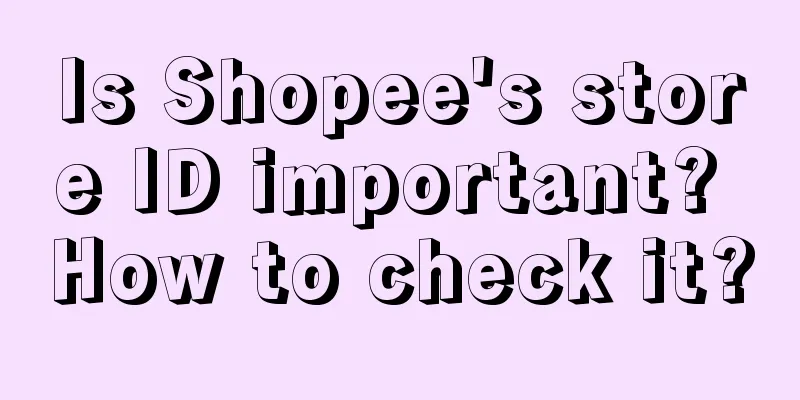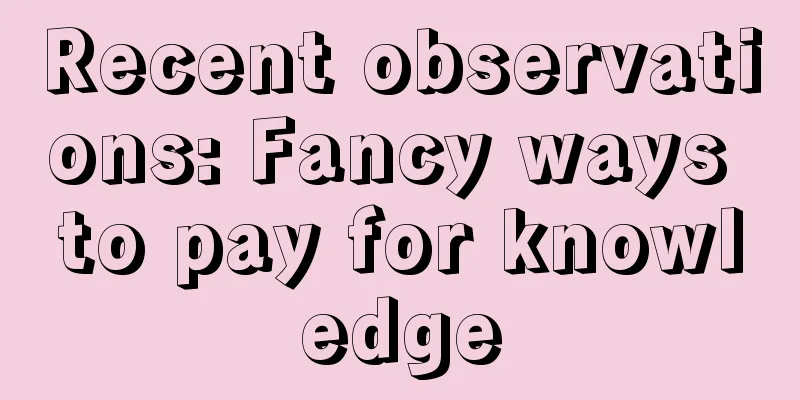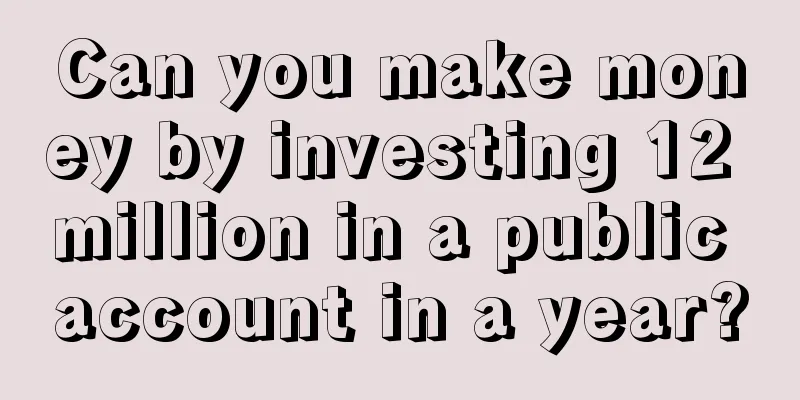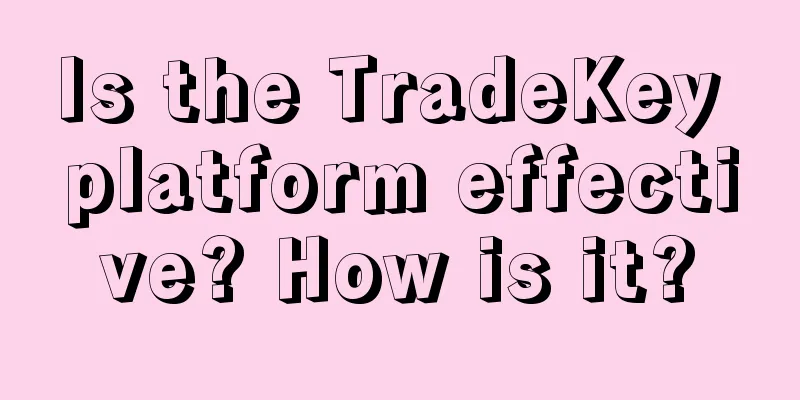Beware of the brainwashing around you
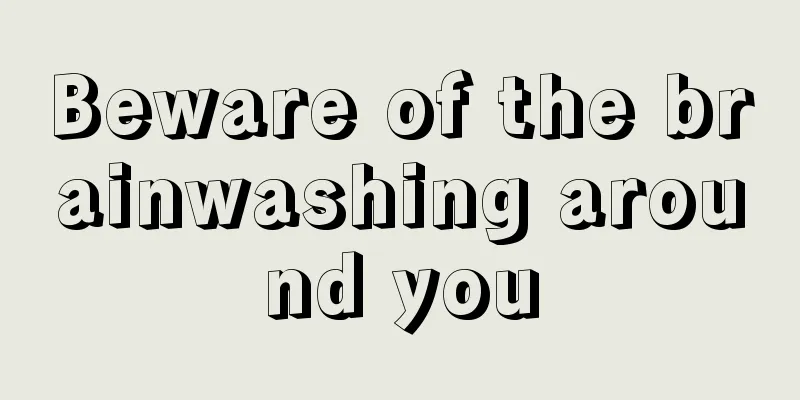
One day, a company CEO asked the department director: Who is the best in your department? The director immediately answered: Xiao Li. The CEO asked again: Why him? The director said: "Xiao Li is always curious and proactive. He not only does a great job, but also has a strong learning ability and can quickly master new knowledge and skills. Moreover, he can always raise some unique questions from a new perspective and challenge our inherent way of thinking. I had a hunch that Xiao Li would be a changer in the department, and the facts proved that I was right. His working methods and innovative thinking have greatly improved the efficiency of the department." Xiao Li was very happy to know that he was praised by the director. Later, someone asked him: How did you improve the efficiency of the department? Xiao Li replied: I always believe that always asking why is the key to finding answers and solving problems. Today, both social elites and ordinary employees agree on the importance of asking in-depth questions. However, there is also a way of asking questions in the world, which is to guide people to accept a fabricated and biased point of view after asking "why" in order to achieve the effect of manipulating cognition and brainwashing. In the early 1980s, people called this educational method of forcing knowledge on people and not allowing them to think freely "cramming education"; now, this method has further evolved into "injection brainwashing." It didn't take long for me to remind myself to be wary of those who ask "why" and then give you a lot of seemingly reasonable but practical ideas. 1. What are the characteristics of “injection-type” brainwashing?First of all, the reasons raised and the answers are irrelevant, which forcibly distorts other people's understanding and is mixed with a lot of emotional guidance, trying to change or strengthen the original ideas. For example: Why did Jobs finally choose juice therapy to fight cancer? Was it because he saw the limitations of traditional medicine? Or did he think that natural therapy and Western medicine were not in conflict? Why did Bill Gates invest in nuclear energy? Is it because he feels that the prospects for renewable energy are not optimistic, or does he think that nuclear energy is the solution to the future of human energy? In fact, Jobs did initially try unconventional treatments after being diagnosed with cancer, but eventually returned to traditional medical treatment, while Gates is a tech mogul who openly supports nuclear energy. The real purpose of this type of "questioning" is not to find the answer, but to set up questions, guide your thinking through the questions, go to another place, and thus strengthen a certain position. It seems logical, but it will be full of loopholes if you think about it carefully. A few days ago, I saw an article about probability, citing the example of the gambler's fallacy. In the coin tossing game, if you have thrown 9 heads in a row, the probability of the 10th tail will be very high. After reading this, I almost laughed out loud. Why? This view seems logical, but it is actually a loophole. In conventional cognition, we believe that the results of tossing a coin should be half heads and half tails. If you toss it nine times in a row and get heads, then the probability of getting tails the next time you toss it should be greater so as to achieve a balance of half heads and half tails. If you think carefully, you will find that each toss of a coin is an independent event, and the probability of heads or tails is always 50% each time; the result of the previous toss, whether heads or tails, will not affect the result of the next toss. Then how could the probability of the opposite side be higher? There are too many such things in life. Some people think that a high IQ means a successful career; I washed my car yesterday, and it rained today, so washing the car must have caused the rain. If you invest a lot of money and time in the stock market, you will definitely get a return; even the choice determines your destiny... I really don't want to refute it, and I don't know where I heard this point of view. I haven't verified it myself, so how do you know? Secondly, the questions raised by injection-type brainwashing are generally large and difficult to solve. Then, the people who raise the questions give large and comprehensive solutions, emphasizing macro and comprehensive acceptance of information, rather than understanding through critical thinking and focusing on a certain problem. for example: I have recently been reading some white papers on private domain marketing, and I found that those contents first describe how bad the current Internet environment is, and then point out that only by having one's own private domain traffic can one survive in this environment. Then, we will introduce in detail how to establish and operate your own private domain traffic, such as WeChat groups, content marketing, and precise push, and emphasize that as long as you do these well, you will be able to win in the environment. I was thinking that it raises a huge and difficult problem, "how to survive in a harsh environment", and then gives a seemingly comprehensive solution, "private domain marketing", which makes people feel that this is the only way to solve the problem. In fact, private domain has its advantages, but it is not the only best solution. The key is that many details cannot be solved by a single word. Take “precision push” for example, how to push? Once you study it carefully, you will understand what it feels like to say, “I know, I know, but I can’t use it.” Therefore, the cramming brainwashing technique is clever and hard to guard against. It often sneaks elements into the information that are difficult for us to reject or question, causing us to unconsciously accept some seemingly reasonable but actually biased or wrong views. 2. Reasons for the success of “injection brainwashing”I think there are two reasons why injection-style brainwashing works so well, based on a logical progression: 1. Changes in language structureLearning and understanding a language is not as simple as memorizing words or sentences. In fact, we rely on some basic rules and structures to understand and learn a language. First of all, grammatical structure, word meaning and syntactic rules are the skeleton of language, just like architectural drawings, which determine how we put words together into meaningful sentences. Then, when we encounter new sentences, it is impossible to learn them from scratch every time. It's like every time you go to a new city, you can't relearn driving skills, but rely on the skills and rules you have already mastered. Similarly, when we read articles and review reports, we rely on known grammatical rules and vocabulary, as well as personal experience, to understand and learn new sentences. Although grammatical structures and syntactic rules may not be directly displayed in specific language expressions, we can still discover these implicit rules by studying and analyzing the language. as: We can observe and analyze a city’s traffic system to find out those subtle traffic rules; however, once you master these structures, you will fall into the “Curse of Knowledge”. The more you know, the more "what you know" will control you, and you will feel powerless to explore different parts of what you already know. After working in marketing for 7 years, I have some deep feelings. It seems that I have accumulated a lot of experience, mastered various terms and methodologies, and understand how to operate them in various scenarios; however, I recently found it difficult to see things from a novice's perspective. I may have difficulty trying to explain a complex concept to a novice because I am used to using professional terms or familiar concepts that are unfamiliar to the novice. Similarly, I am used to analyzing problems using the rules, methods, and structures that I have mastered. Sometimes I feel powerless when it comes to possibilities that are beyond my knowledge because I rely too much on solutions I already know. Therefore, other people’s expressions (language structures) are dynamic in themselves, and we will choose to absorb them based on our own experience and cognition. In the end, these things become injected injections. 2. The integration of thinking and feelingI think we should separate "logic of thinking" and "feeling". So, based on this, I raised two questions: Does language structure affect our feelings? Does language structure change what we want to say? I personally think that language can indeed affect perception. For example, by changing the language from active to passive, people can pay more attention to the role change. However, this does not change the main meaning of the language; sometimes, we may also read some implied meanings from sentences or language. That is to say, the content may have some unspoken meanings and subsidiary thoughts; in this case, it is necessary to figure out which are the subsidiary meanings and which are what the sentence itself wants to say. I personally tend to remove possible additional meanings to see if the true meaning of the language changes after doing so. If the true meaning changes, it means that the additional meaning is what the sentence itself wants to express; if it does not change, it means that it does not affect the basic meaning of the language. At the same time, I also found that the way language is expressed and how the language structure is broken down can make some differences in meaning. Not all sentences can fully express an idea. Some sentences may be ambiguous or have multiple meanings such as emotional, aesthetic, poetic, etc. Therefore, I believe that if the sentence can be converted into a logical form and ambiguity and tense issues can be eliminated, then changing the structure of the sentence will not affect the meaning of the sentence itself. Only content processed in this way can be truly used to discuss ideas and propositions. For example: I have previously read an analysis of a certain company's new solar cell technology, which mentioned that although the new solar cells are more efficient, their manufacturing costs are also relatively higher. His direct implication was that the new solar cells were expensive to manufacture, but his implicit implication may have been the potential problems with large-scale commercial applications of such cells. That is to say, although the battery performs well in laboratory conditions, its high manufacturing cost may limit its application in the commercial market. Therefore, once rigorous logic and feelings are put together, people may be confused and not know whether to follow their logical reasoning, intuition or feeling. It is worth mentioning that the brain's cognitive nature has a most basic need, which is energy conservation. Any problem that requires energy consumption goes against its nature, and it will choose the most energy-saving route. for example: If you’re planning a large event and there are many small and complex things to deal with, it’s tempting to choose the simplest, most straightforward approach and ignore solutions that require more effort but may produce better results. When you are tired, you will encounter some seemingly comforting words, such as "Now I am under a lot of pressure and I am very tired because my social class cannot be changed; my fate is arranged and there is no point in trying." These views seem to comfort you, help you save energy and reduce stress, but in fact, they are invisibly shaping your thinking, making you feel that your efforts are ineffective and depriving you of all motivation. Based on this, the changes in language structure at the social level, the integration of thinking and feeling at the individual level, and the cognitive nature of the brain make it impossible for us to escape the embarrassment of rote brainwashing. So, what should we do? I think the right approach is not only to understand the concept of "cramming brainwashing" and who is influencing it, but also to find your own method. 3. Some suggestionsThese three points have been integrated into my daily life. You can try them: 1. Why do you ask this question?If someone comes to ask me, why is A smarter, more intelligent, and more honest than B, but in the end A is the deputy and B is the boss? At this point, I don't need to figure out the reasons behind this problem. The question he asked may be problematic in itself. To be honest, who can be sure that Person A is really better, smarter, or more reliable than Person B? Maybe this person himself has not discovered the truth, or he is deliberately setting a trap to see me fall into it. In this case, I usually ask him, "I am a little curious about this idea. What is the basis for your thinking? Can you tell me more?" The core point I want to express is that what is more important than asking why is to cultivate more "anti-questioning ability". Some people's questions only represent a superficial question of why. Anti-questioning requires critical thinking about the why. All of this will allow you to dig into the basis of the hypothesis, the background of the problem, and the other party's thinking framework, which are necessary materials for completely shaping your own thinking and the most important framework of the cognitive level. 2. What do you think about this matter?The person asking the question usually has an idea in mind, he just wants to strengthen some results, and on top of the results, dig up some things that he hadn't considered. However, this is not important. I will use the 3V formula to guide the new logic based on the thoughts given by the other party. The 3Vs stand for vision, the state you hope to achieve, the things you desire, and the things that others sincerely want to try; value, the value you attach importance to when judging things; and vocabulary, what kind of words to use to express yourself. For example: Many people like to start their side business from "self-media". They ask me if there is still a chance. I will make assumptions based on the answer. If your ideal is to open up a new curve with "self-media", then your value lies in spreading information through the platform, guiding public thinking, and even influencing public opinions and behaviors. So, as a beginner in self-media, what skills and characteristics do you think you need to have in order to succeed in a market that is not even a blue ocean? In which areas do you think you need to work hard enough to be better than others, or what kind of audience do you need to convey to in order to overtake others? In the end, it is not difficult to find that the question is fed back from the ideal state to what to do. High-quality questions are open and can help the person being asked to answer naturally and find a new world. 3. Figure out how/doOnce you have an idea of what to do, it is important to keep digging until you find a clear path. Furthermore, "what to do and how to do it" are two different things. "What to do" refers to the theoretical way of dealing with things. For example, if you want to lose weight, theoretically you should eat less and exercise more. This is "what to do". What is the "how"? It refers to what you should do to lose weight, such as eating only an apple for breakfast, only vegetables for lunch, no staple food at night, and running five kilometers every day. If you only know "what to do" but don't know "how to do it", then you haven't learned the whole thing. Even if you read 10 weight-loss books in a day, you still won’t lose weight if you don’t take any actual action. This is the reason why many people always say that they know a lot of principles, but cannot live a good life. It is because they cannot combine theory with practice. Why adding ideas is like a syringe. Why adding what and how is equal to the Golden Circle thinking (The Golden Circle), is a closed loop, equal to a complete set of tools, none of which can be missing. I don’t want to “cram” these three methods into your mouth. I just hope that you can get some inspiration and then find your own way of thinking. Overall: Stop giving your brain injections. For me, the highest level of enlightenment is, "What you learn from books is shallow, you can only truly understand it by doing it yourself." For many things, whether they are useful or not can be known by testing them. Stay away from things that resonate in your head. Author: Wang Zhiyuan, WeChat public account: "Classmate Wang Zhiyuan" |
<<: An ugly hat went viral! Is Maimen a brainwash marketing campaign?
>>: These three sets of copywriting are so beautiful
Recommend
How to prevent copycat sales with Amazon Brand Registration? What is the method?
For Amazon merchants, one of the biggest concerns ...
There are so many Christmas advertisements overseas, this is what brands should do to break through in marketing!
Every Christmas is a time for brands to conduct co...
Do you understand the "people, goods, and venue" model? Data analysis can be used in most scenarios!
Many people have heard of the "people, goods,...
How to find Amazon affiliate distributors? How to distribute?
Amazon Affiliate is an advertising affiliate progr...
Looking at vertical user operations from three dimensions
The simple understanding of vertical users is to o...
Building a marketing activity system (Part 2): 18 marketing activity methods
What are the ways to conduct marketing activities?...
Does Shopee have a high return rate? How to reduce the return rate?
When operating a store on Shopee, merchants should...
High-end store brands seek change
In this article, the author takes high-end brands ...
How to settle in shein without a factory? What are the requirements?
Now many domestic merchants are going to settle in...
The marketing codes of the past two years are hidden in 4 groups of national emotions
This article will analyze the key points of brand ...
How to operate a store on Shopee? Practical tips
Online store operation is not only reflected in ma...
The popularity of long dramas has returned, but their commercial value still crushes short dramas?
Long dramas have reignited the film and television...
How to find merchants for Amazon reviews? What is the method?
There are many ways for sellers to find buyers, an...
How to evaluate the effect of Xiaohongshu after publishing
How does Xiaohongshu evaluate the results of its a...
Can ZARA’s live show go beyond the path of selling high-end products?
This article explores how ZARA attempts to take a ...

